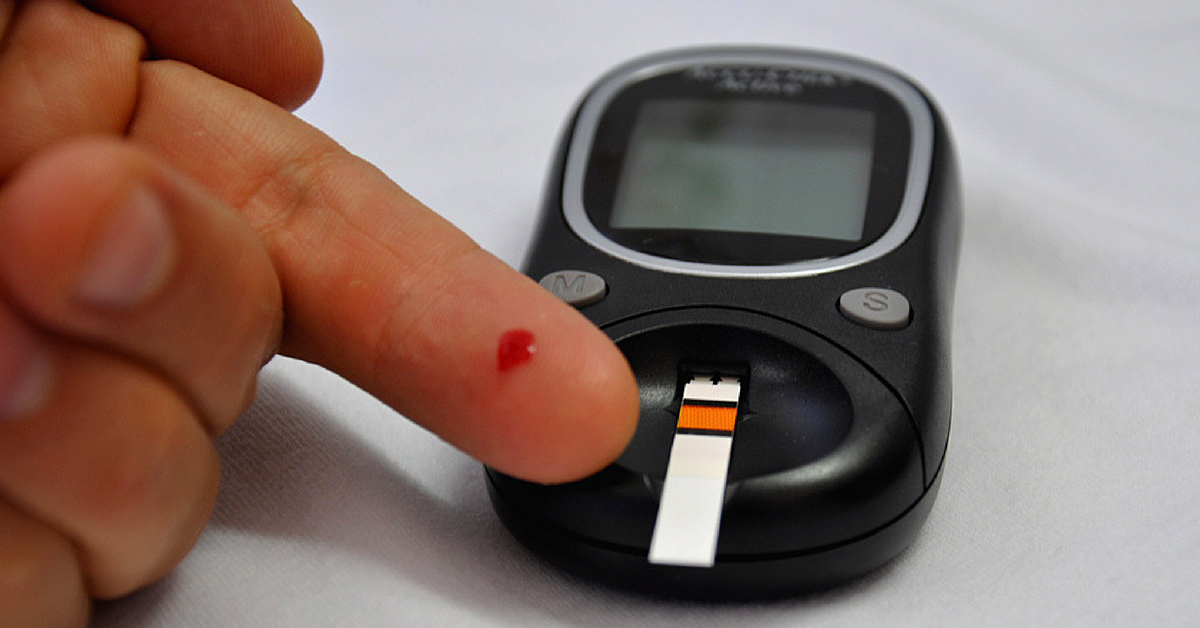This article is a part of a series by The Better India to share verified information about COVID-19 care. While several posts on various aspects of fighting COVID-19 are being circulated on social media and messaging services like WhatsApp, we urge you not to trust unverified content. To separate fact from fiction, we will be sharing the videos and content with doctors and experts and bring you their responses with scientific research-backed information.
News reports suggest that COVID-19 could spur diabetes.
According to The Washington Post, researchers say new-onset diabetes may soon be added to the post COVID-19 complications — both Type 1, in which people cannot make the insulin needed to regulate their blood sugar, and Type 2, in which they make too little insulin or become resistant to their insulin, causing their blood sugar levels to rise. However, scientists do not know whether COVID-19 might catalyse these complications or cause them — or both.
We caught up with Dr Ravi Shekhar Jha, Head of Department and Senior Consultant- Pulmonology, Fortis Escorts Hospital, Faridabad, to understand if there is a connection between diabetes and COVID-19.

1. Is there a correlation between contracting COVID-19 and sugar levels spiking?
Dr Jha: I have not noticed a direct correlation between contracting COVID-19 and sugar levels spiking. However, there is a guideline that makes it mandatory for every COVID-19 patient to undergo a HbA1c (Hemoglobin A1C) test. This test tells you your average level of blood sugar over a period of two to three months. Therefore, many times, patients seem to find out that they are diabetic when they test positive for COVID-19.
2. Can COVID-19 trigger the onset of diabetes in someone who previously did not have it?
Dr Jha: I have not observed this happening. There are no reports that suggest that COVID-19 triggers the onset of diabetes either. What is happening though is with respect to the steroids that is being used for treatment of COVID-19. When steroids are prescribed to those patients who are in the pre-diabetic stage or those having a tendency to get diabetes, it can trigger this condition.
3. How long after one recovers from COVID-19 should they schedule a regular blood test to check for sugar levels, thyroid, cholesterol, etc?
Dr Jha: For up to four weeks after you have recovered from COVID-19, the body is going through a myriad of changes and the blood test reading might not be accurate. It would therefore be prudent for you to wait for after four weeks of recovering completely from COVID-19 to get all the regular blood work done.
4. Is the sedentary lifestyle we are leading during the lockdown adding to the elevated sugar readings?

Dr Jha: That is definitely one of the reasons why we are seeing diabetic patients with an elevated sugar reading. Pre-lockdown we were seeing patients come in with excellent control over their sugar readings, however during and post-lockdown those readings have gone haywire. This, unfortunately, is also contributing to the mortality numbers in severe COVID-19 cases.
5. What is the significance of COVID-19 long haulers? Are they more susceptible to long term damage to the body?
Dr Jha: A COVID-19 long hauler can be defined as someone still having some sort of symptom for 28 days after they were first infected.
Some of the long-lasting symptoms that COVID-19 patients seem to experience includes coughing, tightness in the chest, shortness of breath, headaches, muscle aches and diarrhoea. However, these may vary from patient to patient.
The damage to patients suffering from COVID-19 happens due to the body’s exaggerated immune response. There are certain people who are susceptible to staying in the hospital for a very long time, especially those who are obese, have diabetes or other co-morbidities. Whereas some patients are able to recover quickly while being under home care. It has some genetic predisposition.
6. Is there a connection between COVID-19, diabetes and steroids?
Dr Jha: I have seen many undiagnosed diabetes patients finding out about their diagnosis when they come for COVID-19 admission and treatment. Therefore, steroids should not be used as an over the counter (OTC) medication. Steroids lead to the flaring up of sugar and must be taken only if given a prescription for the same.
(Edited by Yoshita Rao)
No comments:
Post a Comment